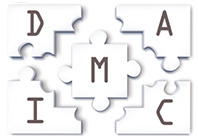- Find the Right Program
- Tailored Contract Training
-
Our Programs & Services
Close
- Our Programs & Services Overview
- Calendar of Program Offerings
- Certificate for Emerging Leaders
- Lean Six Sigma Training and Certificate Programs
- Online Certificate Programs
- Online Training Offerings
- Certificate in Project Management
- Certificate in Project Leadership
- SHRM-CP/SHRM-SCP Certificate Preparation Course
- Supervision And Management Fundamentals Certificate
- Supervision And Management Advanced Certificate
- Certificate of Training and Development
- Certified Digital Marketing Professional + Professional Certified Marketer
- Full Program Listing
- Participant Testimonials
- Corporate Partnership Subscription Program
- Online Industrial Maintenance Training
- About Us
- Contact Us
- Golden Insights Blog
The Center for Corporate and Professional Development
Street Address
Lincoln BuildingP.O. Box 5190, Kent, Ohio 44242
Mailing Address
800 E. Summit St.Kent, OH 44242


 As a Lean Six Sigma Master Black Belt, I’ve been known to think differently than others and my family has noticed. And many people have no idea what it is or what it means. “Martial arts? When did you do that? And what does Lean Six Sigma mean?” Ugh! They’ll never understand. Or, maybe this is the perfect opportunity to let them see me in action and they might just gain some insight into, “What is Six Sigma?”
As a Lean Six Sigma Master Black Belt, I’ve been known to think differently than others and my family has noticed. And many people have no idea what it is or what it means. “Martial arts? When did you do that? And what does Lean Six Sigma mean?” Ugh! They’ll never understand. Or, maybe this is the perfect opportunity to let them see me in action and they might just gain some insight into, “What is Six Sigma?”

